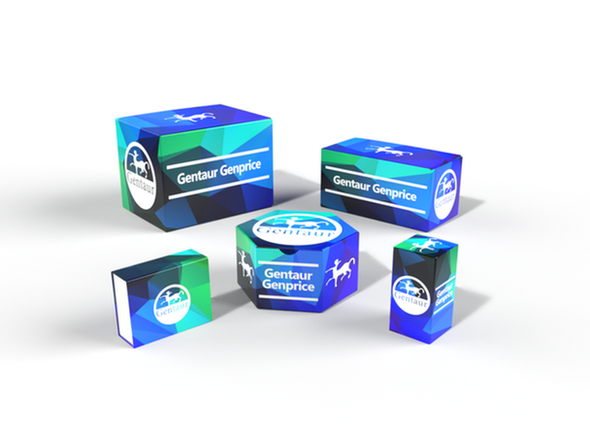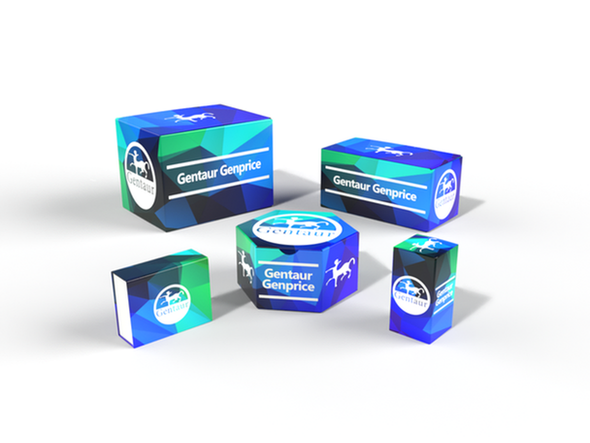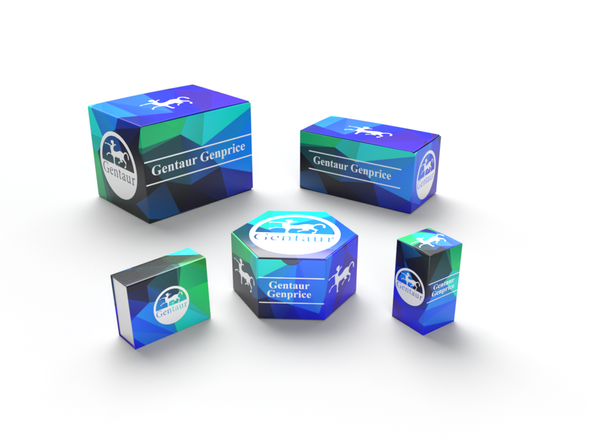740
Human Interferon alpha-21 (IFNA21) ELISA Kit | AE58525HU
- SKU:
- 740-AE58525HU
- Availability:
- Usually ships in 5 working days
Description
Human Interferon alpha-21 (IFNA21) ELISA Kit | AE58525HU | Gentaur UK, US & Europe Distribution
Species Reactivity: Human (Homo sapiens)
Abbreviation: IFNA21
Alternative Name: MGC126687; MGC126689; leukocyte interferon protein
Application: ELISA
Range: 15.6-1000 pg/mL
Sensitivity: 6.2 pg/mL
Intra-Assay: ≤4.3%
Inter-Assay: ≤6.4%
Recovery: 1, 06
Sample Type: Serum, Plasma, Other biological fluids
Detection Method: Sandwich
Analysis Method : Quantitive
Test Principale: This assay employs a two-site sandwich ELISA to quantitate IFNA21 in samples. An antibody specific for IFNA21 has been pre-coated onto a microplate. Standards and samples are pipetted into the wells and anyIFNA21 present is bound by the immobilized antibody. After removing any unbound substances, a biotin-conjugated antibody specific for IFNA21 is added to the wells. After washing, Streptavidin conjugated Horseradish Peroxidase (HRP) is added to the wells. Following a wash to remove any unbound avidin-enzyme reagent, a substrate solution is added to the wells and color develops in proportion to the amount of IFNA21 bound in the initial step. The color development is stopped and the intensity of the color is measured.
Product Overview: The IFNA21 gene was positioned in the cluster of interferon genes on 9p22 by deletion mapping. Interferons (IFNs) are proteins made and released by lymphocytes in response to the presence of pathogens—such as viruses, bacteria, or parasites—or tumor cells. IFNs belong to the large class of glycoproteins known as cytokines. Although they are named after their ability to "interfere" with viral replication within host cells, IFNs have other functions: they activate immune cells, such as natural killer cells and macrophages; they increase recognition of infection or tumor cells by up-regulating antigen presentation to T lymphocytes; and they increase the ability of uninfected host cells to resist new infection by virus. Certain host symptoms, such as aching muscles and fever, are related to the production of IFNs during infection.
Stability: The stability of ELISA kit is determined by the loss rate of activity. The loss rate of this kit is less than 5% within the expiration date under appropriate storage condition. The loss rate was determined by accelerated thermal degradation test. Keep the kit at 37°C for 4 and 7 days, and compare O.D.values of the kit kept at 37°C with that of at recommended temperature. (referring from China Biological Products Standard, which was calculated by the Arrhenius equation. For ELISA kit, 4 days storage at 37°C can be considered as 6 months at 2 - 8°C, which means 7 days at 37°C equaling 12 months at 2 - 8°C) .






